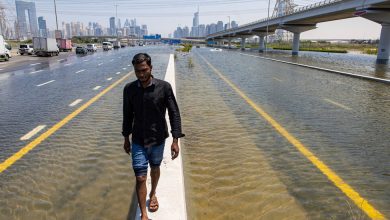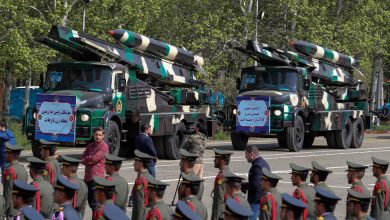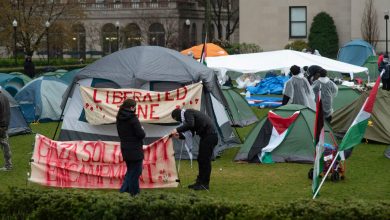Two Men of the Jungle Meet in Herzog’s First Novel

THE TWILIGHT WORLD, by Werner Herzog, translated by Michael Hofmann
Twenty-five years ago in Tokyo, where he had come to direct the world premiere of the opera “Chushingura,” the German filmmaker Werner Herzog received an enviable invitation. At a dinner of the cast and crew, the opera’s composer greeted Herzog with the thrilling news that the emperor of Japan would welcome a private audience with him. “My goodness, I have no idea what I would talk about with the emperor,” Herzog responded. The room froze. “I wish to this day that the earth had swallowed me up,” Herzog recalls dramatically in his first novel, “The Twilight World” — a book in which, his epigraph explains, “most details are factually correct; some are not.” When a guest broke the silence to ask if there was anyone in Japan he would, in fact, like to meet, Herzog answered: “Onoda.” He elaborated: “Hiroo Onoda.”
Unless you are a World War II buff with a passion for the Pacific theater, you may ask: Who? Hiroo Onoda was the Imperial Japanese Army lieutenant who landed on the Philippine island of Lubang late in the war, as Japanese forces were retreating, and hid in its jungles until 1974, refusing to believe the war had ended. Camouflaging his clothing and weapons with clay, leaves and bark, he emerged sporadically from the trees like “an ambulating piece of the jungle” to attack perceived foes. In December 1944, Onoda’s commanding officer, Maj. Yoshimi Taniguchi, had ordered him to “hold the island until the Imperial Army’s return” and to “defend its territory by guerrilla tactics, at all costs.” Onoda obeyed. “Your base of operations will be the jungle,” the major said. He added: “You will be like a ghost, elusive, a continuing nightmare to the enemy.” Onoda fulfilled that superhuman assignment.
These details and quoted words come from encounters Herzog had with Onoda in Japan after he turned down the emperor’s invitation. Herzog understood the thrall that the jungle holds on a man who has entwined a fanatical mission with that treacherous terrain. Fifty years ago, Herzog entered the Amazonian rainforests of Peru to film masterworks about monomaniacal dreamers. First came “Aguirre: The Wrath of God” (1972), a historical fiction about a 16th-century explorer who led a doomed expedition to find a fabled city of gold. Next came “Fitzcarraldo” (1982), a drama about an opera-mad entrepreneur who hauled a steamship over a mountain to finance the construction of an opera house in the Amazon. In the early 1890s, the real Carlos Fitzcarrald transported a boat that weighed some 30 tons over a mountain in pieces. Herzog (and his cast and crew) magnified that feat beyond reason (and safety), hauling a steamship that weighed 10 times more — intact — over that same mountain to achieve Herzog’s cinematic vision.
In “Burden of Dreams”(1982), a documentary on the making of “Fitzcarraldo,” Herzog mused on the “articulate vileness and baseness and obscenity” of the jungle. “The trees here are in misery, and the birds are in misery. I don’t think they sing, they just screech in pain,” he said, continuing, “We are cursed with what we are doing here.” And yet, he affirmed, he loved the jungle, “against my better judgment.” With Onoda, he was able to share what Joseph Conrad called “the peculiar blackness of that experience.” In “The Twilight World,” Herzog explains, “I had worked under difficult conditions in the jungle myself and could ask him questions that no one else asked him.” This long-steeped book distills their conversations into a potent, vaporous fever dream; a meditation on truth, lie, illusion and time that floats like an aromatic haze through Herzog’s vivid reconstruction of Onoda’s war.
In the jungles of Lubang, first with other Imperial Army holdouts, later on his own, Onoda subsisted on stolen rice, scavenged fruit and, on occasion, water buffalo meat (smoked under cover of fog). When a leaflet landed on the forest floor in the fall of 1945, announcing the war’s end, Onoda took it as forgery, “the work of American agents.” When one of his band, Yuichi Akatsu, surrendered to the Philippine Army in 1950, loudspeakers appeared on a mountaintop, playing a recording of Akatsu assuring Onoda that he was being treated well. Onoda decided that the voice was a simulation or that, if genuine, Akatsu had been tortured to produce it.
As days melted into months, decades, Herzog writes, time slowed, congealed, evaporated: “A night bird shrieks and a year passes. A fat drop of water on the waxy leaf of a banana plant glistens briefly in the sun and another year is gone.” Michael Hofmann’s resonant translation conveys the portentous shimmer of Herzog’s voice. Sometimes, Herzog writes, Onoda had doubts; not of his duty but of the reality of his experience. “Is it possible that I am dreaming this war?” he asked himself. “Could it be that I’m wounded in some hospital and will finally come out of a coma years later, and someone will tell me it was all a dream? Is the jungle, the rain — everything here — a dream?”
But more than a quarter-century into his campaign, when a plane looped above the island, broadcasting a direct appeal to Onoda from President Ferdinand Marcos, assuring him of amnesty, he suspected a trap. And when his own brother recorded a message that echoed across the treetops for weeks, begging “Hiroo, my brother” to come out of hiding, Onoda’s self-deluding mind recast it as a cryptic hint that the Imperial Army was about to retake the island.
It was not until February 1974 that a hippie Onoda stan, Norio Suzuki, flushed the soldier out. Spotting Suzuki, Onoda leaped at him and pointed a gun at his chest. “How could I be an American agent?” Suzuki protested. “I’m only 22.” Many men in mufti had tried to take him before, Onoda responded. “I have survived 111 ambushes,” he said, adding: “Every human being on this island is my enemy.” Suzuki had to promise to fly in a commanding officer from 1944 before he would stand down.
When Major Taniguchi arrived on Lubang two weeks later and told Onoda, face-to-face, “Lieutenant, your war is over,” Onoda still hoped it might be an elaborate ruse, a loyalty test. He handed over his rifle to a Filipino general nonetheless, and then his family sword, which he had preserved from rust with palm oil he had made himself. The general handed it back. “The true samurai keeps his sword,” he told Onoda. Later, Herzog writes, “he will admit that inside everything in him was bawling.”
Onoda, who died in 2014 at age 91, lived in the jungle for almost 30 years; Herzog arguably has never left it. Only a few years back, he returned to the Amazon to induct four dozen budding filmmakers into his mythic practice. He told them, “It is the job of the filmmaker to jump out of the window into the boat even if he has no confidence there is water beneath it.” Onoda surely would have agreed. In “The Twilight World,” Herzog presents a kind of dual libretto to the operas both men conducted in their different jungles. They worked on different continents, in different eras and to different ends, but they served the same inexorable impulse: to lead a life of archetype in the modern day, outside of time, eternal.
Liesl Schillinger is a critic and translator and teaches journalism at the New School in New York City. Her translation of the novel “Stella,” by Takis Würger, came out in paperback this year.
THE TWILIGHT WORLD, by Werner Herzog. Translated by Michael Hofmann. | Penguin Press | 144 pp. | $25



